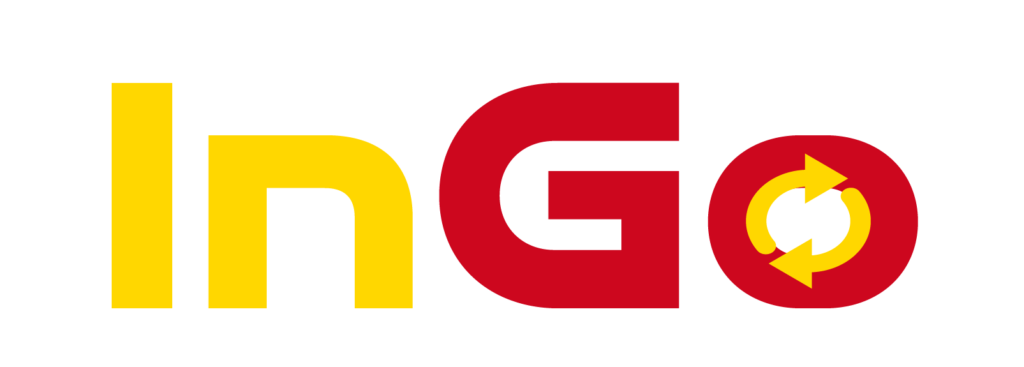In today’s fast-paced digital world, advertising has become the backbone of successful businesses. As companies look to expand their reach and connect with diverse audiences, Turkey has emerged as a dynamic hub for innovative advertising and campaign services. With its unique blend of cultural richness and modernity, Turkey offers a vibrant market for creative strategies that resonate locally and globally.
We’re witnessing a shift where tailored campaigns and cutting-edge technologies are reshaping how brands engage with their audiences. From digital marketing to traditional media, Turkey’s advertising industry is thriving, supported by a growing pool of talented professionals and agencies. Whether it’s launching a new product or building brand loyalty, businesses in Turkey are leveraging these services to stay ahead in a competitive landscape.
Overview Of Advertising And Campaigns Services In Turkey
Turkey’s advertising landscape integrates traditional and digital methodologies, leveraging diverse platforms. Agencies focus on creative approaches combined with data-driven insights to enhance brand visibility. These services cater to sectors such as retail, technology, tourism, and finance.
Digital advertising leads this market, with a significant emphasis on social media platforms like Instagram, Facebook, and TikTok. Search engine marketing (SEM) and programmatic advertising also play pivotal roles in targeting precise demographics. Traditional channels, including TV, radio, and outdoor billboards, continue supporting omnichannel campaigns.
We see high demand for customized content marketing and influencer collaborations due to Turkey’s youthful, tech-savvy audience. Localizing campaigns for regional cultural nuances further boosts engagement. Advanced analytics enable real-time optimization, ensuring measurable results for businesses of all sizes.
Many agencies in Turkey offer end-to-end campaign management, from strategy development to execution. Businesses gain access to media planning, content creation, and performance tracking under one roof. This structure fosters collaboration and delivers consistent brand messaging.
Key Trends In The Turkish Advertising Industry
Turkey’s advertising sector is rapidly evolving, relying on digital innovation and societal changes to shape its strategies. Market trends reveal a significant shift driven by technology adoption and audience behavior.
Rise Of Digital Advertising
Digital advertising dominates Turkey’s marketing landscape, with spending exceeding $1 billion annually as of 2023. Businesses prioritize online platforms like Google Ads and programmatic advertising due to their ability to deliver targeted content. Video ads, particularly on YouTube and streaming platforms, garner high engagement, making them a preferred format. Mobile-first strategies are essential, given Turkey’s 77 million smartphone users.
Growth Of Social Media Campaigns
Social media campaigns are central to many brands’ strategies in Turkey. Platforms like Instagram, Facebook, TikTok, and Twitter attract substantial advertising investment due to their high penetration rates. Influencer partnerships play a vital role in extending brand reach, especially among Gen Z and millennials. Trends such as interactive stories, reels, and live sessions drive engagement, with localized content maintaining cultural resonance. Data-driven tools enable precise audience targeting, ensuring optimized campaign performance.
Types Of Advertising And Campaigns Services Available
Turkey offers a diverse range of advertising and campaign services that cater to the unique needs of businesses across industries. These services combine traditional techniques, modern digital strategies, and immersive experiences to strengthen brand presence.
Traditional Advertising Services
Traditional advertising remains significant in Turkey, especially for reaching wider audiences. These services include TV commercials, radio ads, print media campaigns, and out-of-home (OOH) advertising such as billboards and transit ads. TV commercials account for a substantial share of advertising budgets, leveraging popular channels to capture mass appeal. Print media, including newspapers and magazines, targets specific demographics and ensures exposure in local markets. OOH campaigns, placed in high-traffic urban areas, effectively build brand awareness.
Digital Marketing And SEO Services
Digital marketing has become a cornerstone of advertising efforts in Turkey. This includes pay-per-click (PPC) campaigns, social media marketing, content marketing, and advanced SEO strategies. Businesses increasingly invest in platforms like Google Ads and social giants such as Instagram, Facebook, and TikTok to engage digitally native audiences. SEO services, involving keyword optimization, technical audits, and localized content strategies, are essential for enhancing online visibility. Data-driven digital tools further assist in crafting personalized campaigns and optimizing performance metrics.
Event And Experiential Marketing
Event and experiential marketing services focus on creating memorable, brand-centered experiences for target audiences. These services involve product launches, corporate events, trade shows, and interactive brand exhibitions. Experiential campaigns in Turkey often integrate cultural elements, enhancing brand connections with local consumers. Interactive kiosks, branded installations, and virtual reality experiences are used to engage attendees. These programs not only drive engagement but also amplify word-of-mouth marketing and social media buzz, ensuring a lasting impression.
Challenges In The Turkish Advertising Market
Navigating Turkey’s advertising landscape presents several challenges stemming from cultural, economic, and market-specific factors. These complexities demand strategic approaches to ensure campaign success.
Cultural Considerations
Turkey’s unique blend of traditional and modern values creates challenges in appealing to diverse consumer segments. Campaigns must balance culturally sensitive messaging with contemporary trends to resonate with traditional and progressive audiences alike. For instance, religious holidays like Ramadan have significant marketing potential but require careful planning to respect cultural customs. Additionally, regional differences across Turkey necessitate localized content, as the preferences of urban audiences in cities like Istanbul often differ from those in rural areas.
Language nuances also play a role. While Turkish is the dominant language, usage of regional dialects and incorporating English terms for modern branding require careful calibration to avoid alienating target demographics.
Economic Factors
Turkey’s volatile economic conditions impact advertising budgets and consumer purchasing power. Inflationary pressures and currency fluctuations influence businesses’ ability to fund large-scale campaigns, necessitating cost-efficient strategies. For small and medium enterprises, limited financial resources restrict access to premium advertising channels, creating disparities in market visibility.
Ad spending trends are shaped by macroeconomic shifts. For instance, businesses tend to favor digital marketing for its cost-efficiency and measurable ROI during periods of economic instability. However, agencies must remain agile to adjust campaign strategies as economic conditions evolve.
Future Outlook For Advertising And Campaigns Services In Turkey
The advertising industry in Turkey continues to evolve, driven by technological advancements and shifting consumer behaviors. Emerging trends suggest increased integration of artificial intelligence (AI) and machine learning (ML) to enhance campaign personalization and performance tracking. AI algorithms analyze consumer preferences, enabling brands to deliver hyper-targeted content across platforms.
The growth of e-commerce, projected to expand by 19% annually in Turkey (Statista, 2023), fuels demand for performance-based advertising models. Brands invest in programmatic advertising technologies for precision targeting and automation. Voice search optimization is expected to rise with the increasing adoption of digital assistants like Siri and Google Assistant.
Sustainability is becoming a key focus, prompting agencies to develop campaigns emphasizing environmentally friendly practices. The global shift towards eco-consciousness influences Turkish consumers, especially millennials and Gen Z, who value brands prioritizing social responsibility.
The metaverse offers new opportunities for immersive virtual campaigns. Companies explore augmented reality (AR) and virtual reality (VR) technologies for unique customer engagement experiences. For example, fashion and real estate brands may provide virtual try-ons or property walkthroughs.
With Turkey’s diverse cultural landscape, businesses actively embrace localized strategies to engage regional audiences effectively. Multilingual campaigns in Turkish, Kurdish, and Arabic help brands navigate linguistic nuances. Agencies are likely to expand services in data localization for more precise regional targeting.
The demand for influencer marketing remains strong but shifts towards micro-influencers whose smaller audiences often translate to higher engagement rates. Partnerships with micro-influencers offer authentic connections with niche segments, aligning with tighter marketing budgets.
Economic challenges, including inflation and currency exchange fluctuations, push for cost-effective advertising solutions. We anticipate increased collaborations between agencies and businesses to design campaigns maximizing return on investment (ROI) through strategic resource allocation.
Real-time campaign optimization using advanced analytics tools ensures adaptability to changing consumer trends. This capability fosters data-driven decision-making, making campaigns more effective across industries like retail, tourism, and technology.
Conclusion
Turkey’s advertising industry offers a dynamic blend of tradition and innovation, making it a prime destination for businesses seeking impactful campaigns. With a focus on tailored strategies, cultural relevance, and advanced technologies, agencies in Turkey are well-equipped to meet diverse market demands.
As the industry continues to evolve, staying ahead of trends like AI integration, sustainability, and immersive experiences will be crucial. By leveraging local expertise and data-driven insights, businesses can navigate challenges and unlock the full potential of Turkey’s vibrant advertising landscape.
Frequently Asked Questions
What makes Turkey a competitive market for advertising services?
Turkey’s unique blend of cultural richness and modernity makes it a dynamic advertising market. The skilled workforce, demand for tailored campaigns, and integration of traditional and digital strategies create innovative opportunities for businesses to build brand loyalty and visibility.
Which advertising methods are most popular in Turkey?
Digital advertising dominates, with significant investments in social media, video ads, and programmatic advertising. Traditional channels, including TV, radio, and print, remain relevant as part of omnichannel strategies.
Why is social media important for advertising in Turkey?
Turkey’s youthful, tech-savvy audience actively engages on platforms like Instagram, TikTok, and Facebook, making social media key for interactive, influencer-driven campaigns that connect with Gen Z and millennials.
What industries benefit most from advertising in Turkey?
Retail, technology, tourism, and finance are some of the top sectors leveraging advertising services to engage diverse audiences with localized campaigns and advanced targeting tools.
How do Turkish advertising agencies ensure successful campaigns?
Agencies use data-driven insights combined with creative approaches to deliver customized campaigns. They also localize content to align with cultural nuances and consumer preferences for greater engagement.
What impact does technology have on Turkey’s advertising industry?
Technological advancements, such as AI, machine learning, and programmatic tools, enable precise audience targeting, real-time campaign optimization, and interactive content trends like immersive experiences in the metaverse.
What role does influencer marketing play in Turkey?
Influencer marketing is vital for reaching younger demographics. Brands often collaborate with influencers on platforms like Instagram and TikTok, with a rise in demand for micro-influencers who foster authentic connections.
How do economic challenges impact advertising strategies in Turkey?
Economic factors like inflation and currency fluctuations necessitate cost-effective and agile strategies. SMBs increasingly opt for performance-based and budget-friendly campaigns to maximize returns.
What future trends are shaping Turkey’s advertising industry?
Emerging trends include AI-driven personalization, sustainability-focused campaigns, metaverse advertising, localized multilingual marketing, and micro-influencer partnerships for authentic brand engagement.
Are traditional advertising methods still effective in Turkey?
Yes, traditional methods like TV, radio, print, and out-of-home (OOH) ads remain impactful, especially for building brand awareness in hybrid campaigns that integrate with digital approaches.



 WeChat
WeChat